
Nonprofit CRM and donor management software promote growth, sustainability, and structure for a nonprofit organization seeking to take its goals to the next level. While utilizing spreadsheets, various apps, and websites to handle your events and fundraising campaigns can be a good starting point for an organization, there comes a point when it becomes unmanageable to keep all of these tools and functions separate. Organizations need to practice strong data management to succeed. That’s why nonprofit CRM software is vital for a charity to scale and grow.

What We’ll Cover
- What Exactly Is Nonprofit CRM?
- Benefits of Utilizing Nonprofit CRM and Donor Management Software
- Streamline Information
- Plan for Growth
- Find Tools for Everything Nonprofit
- Scale
- Save Time through Automation
- Explore New Ways Of Growing Your Donor Base
- Our Fundraising Platform Integrates with the Most Popular Nonprofit CRMs
What Exactly Is Nonprofit CRM?

CRM stands for customer (or client) relationship management. For nonprofits, CRM software is a great tool to manage the different constituents and parties that make up and support a nonprofit organization’s community. Here are the various types of data that can be funneled into a CRM platform that make up the multi-dimensional facets of a nonprofit organization:
- Donors and Supporters: Donor information includes name, contact information, lifetime donations and activity of donations, past attendance of events, participation in fundraising campaigns, referral sources, types of donor memberships, the status of donor conversion (i.e., how they were referred, whether they were contacted and when, status of donation requests, follow-up details, and more).
- Sponsors: Sponsor information includes the name of the sponsoring company or individual, contact information, types of sponsorships offered (monetary or in-kind, and what type of in-kind donations), status of sponsorship conversion (i.e., how they were referred, whether they were contacted and when, the status of donation, follow-up details, etc.), lifetime sponsorship donations, tax information, gift receipt information.

- Volunteers: Volunteer information includes contact information, types of experience, past events where they volunteered, and attendance for upcoming volunteer opportunities.
- Event Attendees: Event information includes contact information, ticket type purchased, and event sales activity.
- Vendors and Venues: Vendors and venue information includes contact information, pricing information, contract term details, notations of past experiences, and ratings of vendors and venues.
- Public Relations/Media/Advertising: Contact information, websites, costs to advertise, links to press releases sent in the past, and the effectiveness of a media outlet.

- Newsletter Subscribers (Mailing List): The mailing list includes contact information, perhaps the email open rate, click-through rate of emails, conversion rate (whether a newsletter subscriber became a donor), and other newsletter activity.
Benefits of Utilizing Nonprofit CRM and Donor Management Software
A nonprofit CRM can be extremely powerful to an organization by bringing all of the various information that affects the success and growth of an organization into one place. Let’s discuss the benefits an organization will gain from a nonprofit CRM software solution, from streamlining information to growing through strong data practices.
Streamline Information
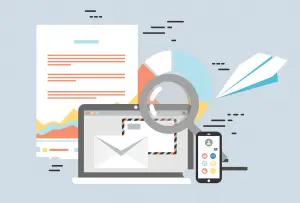
The first reason CRM software is so attractive for a nonprofit is being able to find all your information in one place. Over time, seeking such vital data from over half a dozen websites, tools, and software platforms can become overwhelming. When information is scattered across various locations, it often lives in a vacuum, without regard to whether the data overlaps with other data and activity outside of the source. This downfall can threaten donor loyalty, something you certainly don’t want to risk.
Contacting donors and prospects too often (or by multiple people within the organization), not being able to strategize your outreach properly, and being misinformed when planning for growth are all risks of poor data hygiene. When information is streamlined in one place, it is easier to see the lifespan of a prospect or donor.
Plan for Growth

When this information becomes accessible from one easy-to-access place, this allows for powerful and effective analysis to plan for growth. Nonprofits should always build on past successes, never starting over each time they plan for something new. A nonprofit CRM platform becomes most appealing when the data can give informative insights about donor activity. Reports might include helpful information, such as the following:
- What are the demographics of your donor base?
- What fundraising campaigns are most effective at bringing in new supporters?
- What were the costs and benefits of your annual signature events?
- What channels are most productive for gaining new volunteers?
- Do you have strong monthly recurring donors, or could you target new supporters for this program?
- Who can you approach for a major gift or corporate sponsorship?
These are just some questions that can be a good starting point for planning on an annual or quarterly basis. Some CRM platforms can also offer a customizable dashboard for the most important metrics that matter to your organization. Such data can continue to weed out poor planning strategies and ineffective outreach methods, expand upon the best ones and keep your finger on the pulse of the most up-to-date progress.
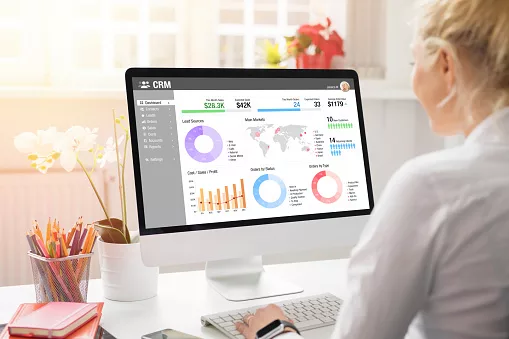
Find Tools for Everything Nonprofit
A robust nonprofit CRM not only funnels information into one database but can be versatile enough to offer other useful nonprofit fundraising tools. This includes integrations and add-ons for such tools as the following:
- Nonprofit crowdfunding
- Peer-to-peer fundraising
- Donations and donor management
- Fundraising event management
- Email Marketing and newsletter management
- Surveys
- And more
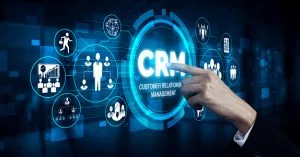
Streamlining information is more than just importing information that already exists elsewhere. Streamlining information includes funneling real-time activity with all of these fundraising tools into your nonprofit’s CRM software platform. For every person who has begun a crowdfunding or peer-to-peer fundraising campaign, subscribed to the newsletter, or bought a ticket to an event, these actions can seamlessly integrate with and update into the CRM software.
Scale

Building a successful organization takes a strong, resourceful, and communicative team. This means your nonprofit CRM platform will have an administrative feature that can scale as your organization grows. The administrative features should be customizable to only access certain databases or features or vary by editing or viewing rights. As the board or staff grows, it becomes simple to share access to the information with newcomers without having to sift through multiple log-ins of different tools and websites to give them all the necessary information to hit the ground running in their role.
Save Time through Automation
While some tasks can be cumbersome to remember, they are important to your supporters. This includes thank you notifications for donors after a certain action (like giving a donation or attending an event), an appreciation letter for volunteers, reminders of event details for crowdfunding events, tips for successful peer-to-peer fundraising efforts after joining, and more. Planning one step ahead of your donor helps build donor loyalty and keeps your organization mindful that there is still more to do after the first interaction with donors, volunteers, and sponsors.
Explore New Ways Of Growing Your Donor Base
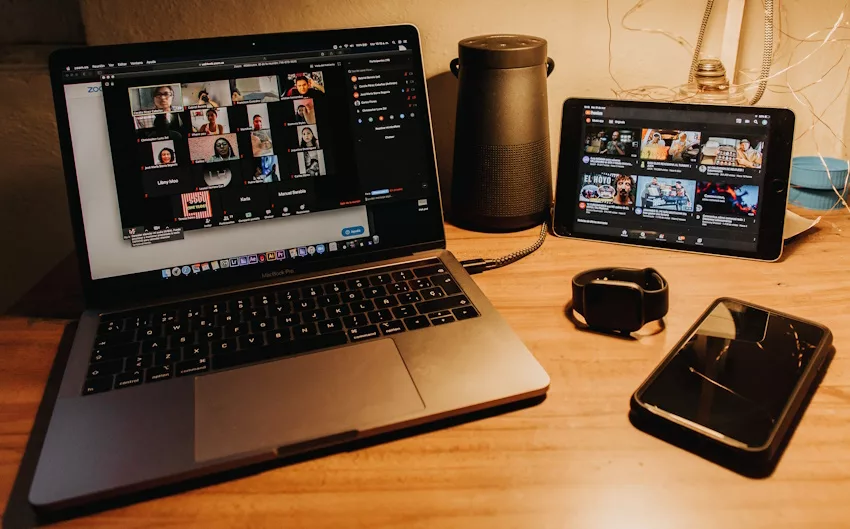
Storing all your donor data in one location simplifies and strengthens communication with your community. Once your CRM is in place, your group can consider adding new methods of fundraising that can be communicated to your donor base and email list, such as the popular methods below.
Crowdfunding Campaigns
While many fundraising events rely on registration or ticket fees, why not maximize the impact of your supporters? Nonprofit peer-to-peer crowdfunding amplifies the intentions of your supporters and empowers them to get involved by delving into their own networks and participating in fundraising events. Crowdfunding allows loyal supporters to help increase your donor base. Funneling crowdfunding campaigns into your CRM system makes it easier to scale the communication and handle the growth that comes with crowdfunding campaigns.

Monthly Giving Programs
Monthly giving programs can boost the growth of your nonprofit fundraising goals. The first step is to design a powerful web page explaining the need for and benefits of the monthly giving program. Once this is in place, you’ll uncover other initiatives that help convert one-time and new donors to monthly donors. These include a link and an excerpt about the program in newsletters, mentioning the program in social media posts, and setting up an automated email to reply to first-time donors about the monthly giving program.
Tribute Gifts
Many people who lose a loved one want to find a positive way to celebrate their memory. Promoting tribute gifts allows those close to a nonprofit’s cause to share their passion while honoring a loved one. Tribute gifts are powerful because they come from a strong belief in an organization’s mission on behalf of someone’s memory or honor.
Our Fundraising Platform Integrates with the Most Popular Nonprofit CRMs
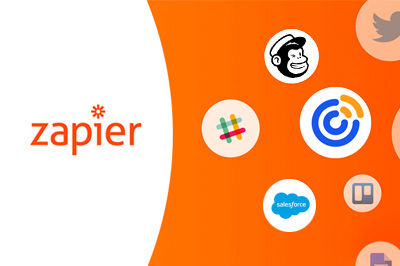
Through our integration with Zapier, DoJiggy integrates with the most popular nonprofit CRMs. Zapier lets users easily automate their daily workload by creating automatic connections between online tools and apps.
Many organizations want to take their donor data from our fundraising application and import it directly into their nonprofit CRM. This task can be automated with Zapier, with the following popular CRMs:
- Salesforce
- EveryAction
- Little Green Light
- Bloomerang
- HubSpot
- NeonCRM
- Zoho CRM
- Nutshell
- NationBuilder
- Odoo CRM
- Virtuous CRM
- and many more



